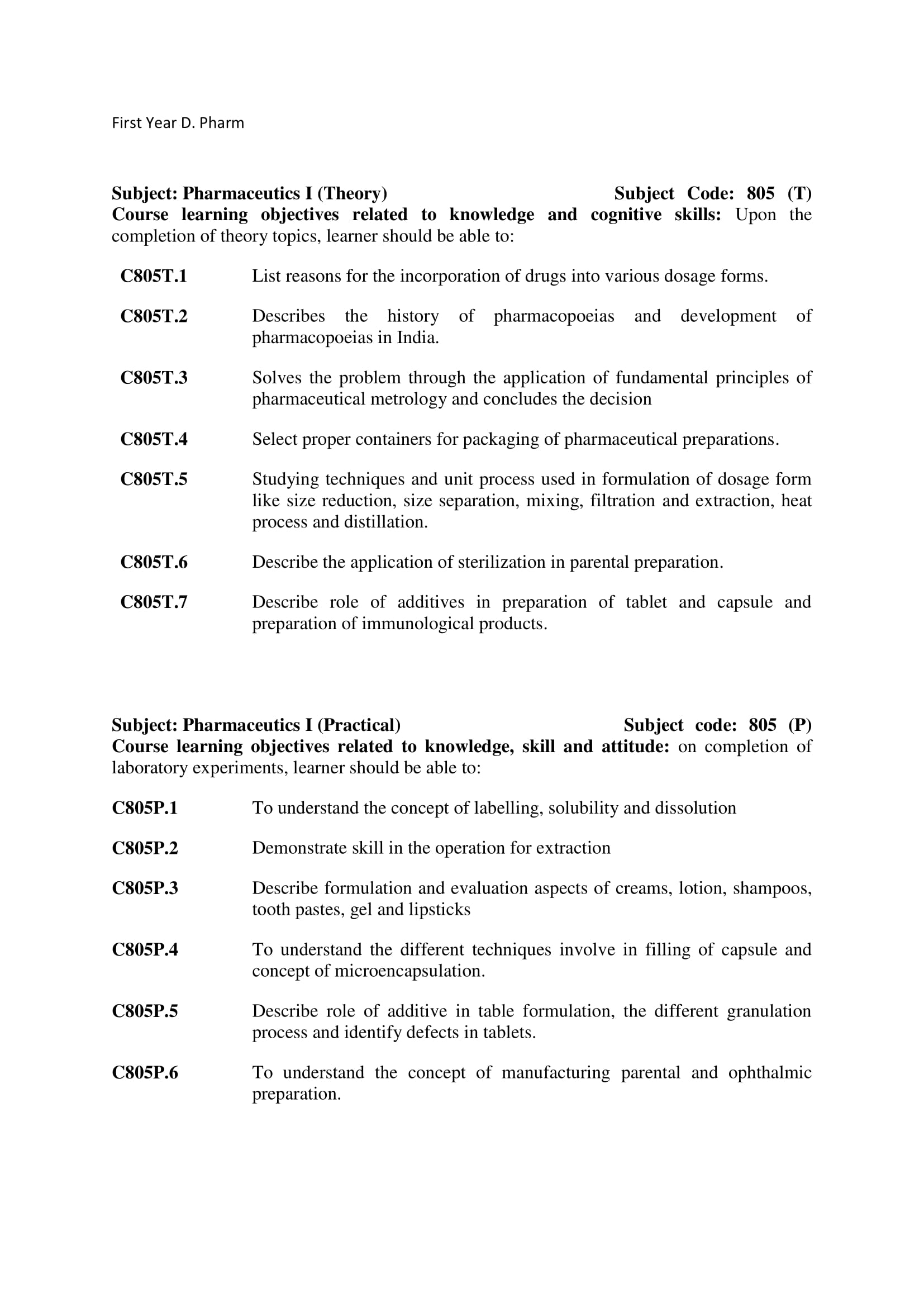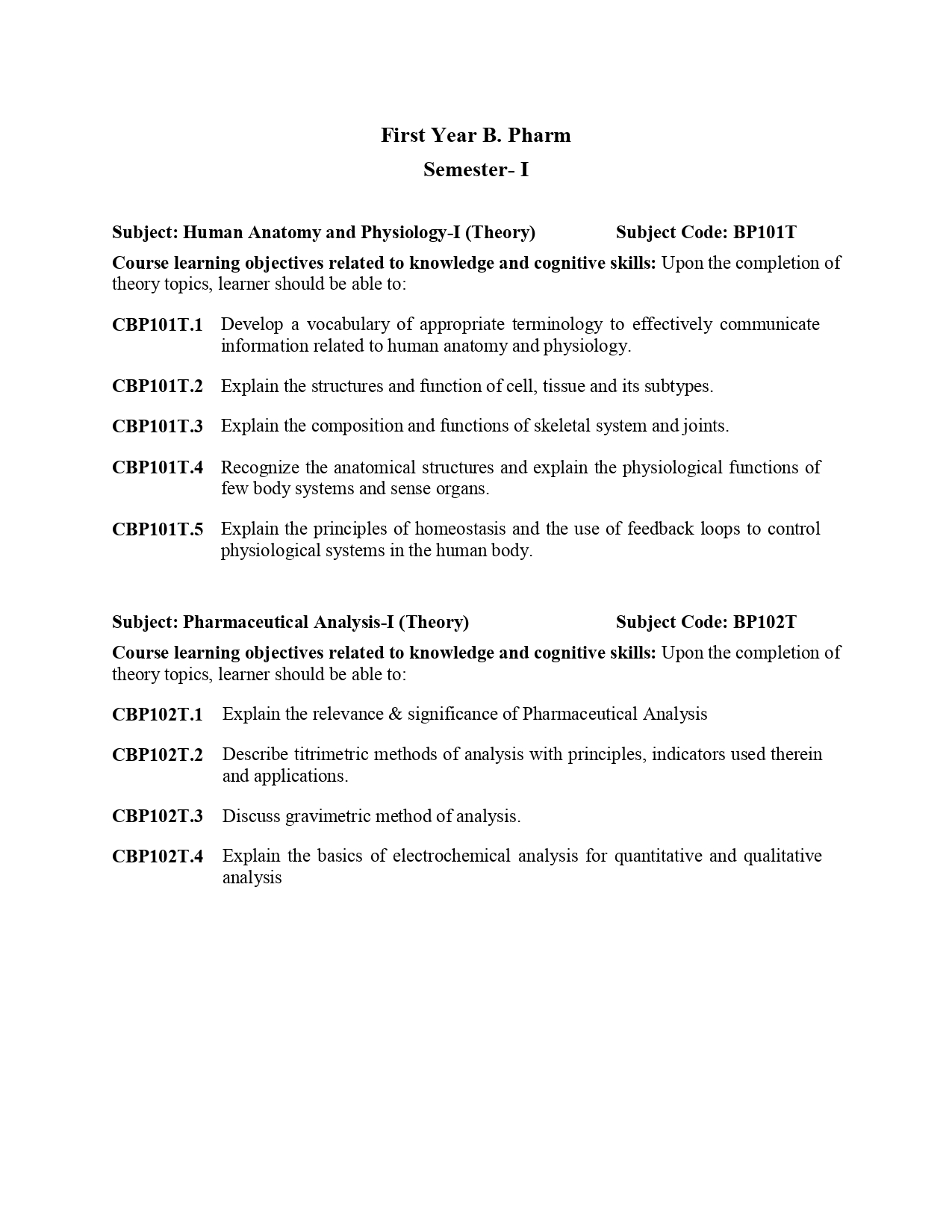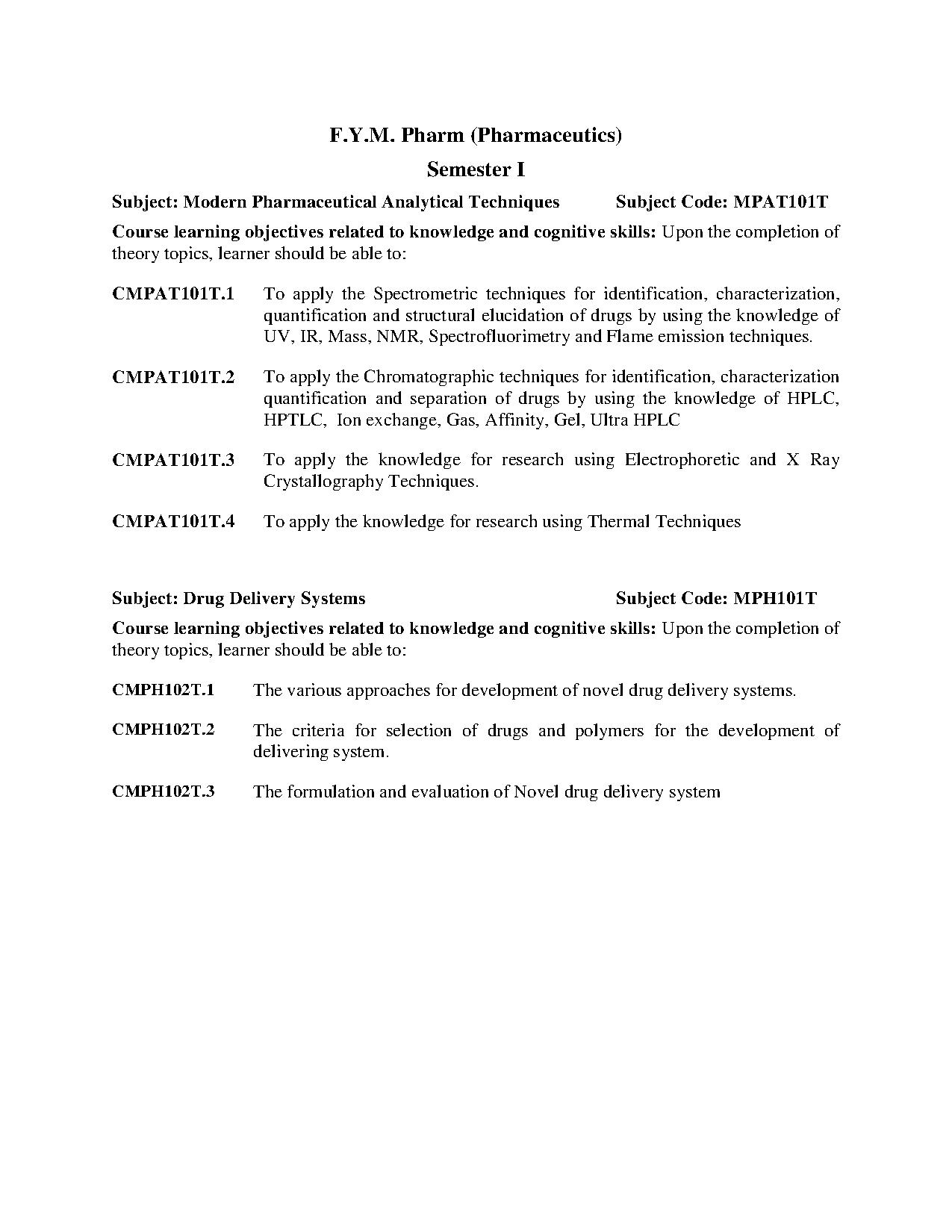B.Pharm & M. Pharm
1. Pharmacy Knowledge: Possess knowledge and comprehension of the core and basic knowledge associated with the profession of pharmacy, including biomedical sciences; pharmaceutical sciences; behavioral, social, and administrative pharmacy sciences; and manufacturing practices.
2. Planning Abilities: Demonstrate effective planning abilities including time management, resource management, delegation skills and organizational skills. Develop and implement plans and organize work to meet deadlines.
3. Problem analysis: Utilize the principles of scientific enquiry, thinking analytically, clearly and critically, while solving problems and making decisions during daily practice. Find, analyze, evaluate and apply information systematically and shall make defensible decisions.
4. Modern tool usage: Learn, select, and apply appropriate methods and procedures, resources, and modern pharmacy-related computing tools with an understanding of the limitations.
5. Leadership skills: Understand and consider the human reaction to change, motivation issues, leadership and team-building when planning changes required for fulfillment of practice, professional and societal responsibilities. Assume participatory roles as responsible citizens or leadership roles when appropriate to facilitate improvement in health and well-being.
6. Professional Identity: Understand, analyze and communicate the value of their professional roles in society (e.g. health care professionals, promoters of health, educators, managers, employers, employees).
7. Pharmaceutical Ethics: Honour personal values and apply ethical principles in professional and social contexts. Demonstrate behavior that recognizes cultural and personal variability in values, communication and lifestyles. Use ethical frameworks; apply ethical principles while making decisions and take responsibility for the outcomes associated with the decisions.
8. Communication: Communicate effectively with the pharmacy community and with society at large, such as, being able to comprehend and write effective reports, make effective presentations and documentation, and give and receive clear instructions.
9. The Pharmacist and society: Apply reasoning informed by the contextual knowledge to assess societal, health, safety and legal issues and the consequent responsibilities relevant to the professional pharmacy practice.
10. Environment and sustainability: Understand the impact of the professional pharmacy solutions in societal and environmental contexts, and demonstrate the knowledge of, and need for sustainable development.
11. Life-long learning: Recognize the need for, and have the preparation and ability to engage in independent and life-long learning in the broadest context of technological change. Self-assess and use feedback effectively from others to identify learning needs and to satisfy these needs on an ongoing basis.
D. Pharm
1. Pharmacy Knowledge: Possess knowledge and comprehension of the core and basic knowledge associated with the profession of pharmacy.
2. Modern tool usage: Learn, select, and apply appropriate methods and procedures, resources, and modern pharmacy-related computing tools with an understanding of the limitations.
3. Leadership skills: Understand and consider the human reaction to change, motivation issues, leadership and team-building when planning changes required for fulfillment of practice, professional and societal responsibilities. Assume participatory roles as responsible citizens or leadership roles when appropriate to facilitate improvement in health and wellbeing.
4. Professional Identity: Understand, analyze and communicate the value of their professional roles in society (e.g. health care professionals, promoters of health, educators, managers, employers, employees).
5. Pharmaceutical Ethics: Honour personal values and apply ethical principles in professional and social contexts. Demonstrate behavior that recognizes cultural and personal variability in values, communication and lifestyles. Use ethical frameworks; apply ethical principles while making decisions and take responsibility for the outcomes associated with the decisions.
6. Communication: Communicate effectively with the pharmacy community and with society at large, such as, being able to comprehend and write effective reports, make effective presentations and documentation, and give and receive clear instructions.
7. The Pharmacist and society: Apply reasoning informed by the contextual knowledge to assess societal, health, safety and legal issues and the consequent responsibilities relevant to the professional pharmacy practice.
8. Environment and sustainability: Understand the impact of the professional pharmacy solutions in societal and environmental contexts, and demonstrate the knowledge of, and need for sustainable development.
9. Life-long learning: Recognize the need for, and have the preparation and ability to engage in independent and life-long learning in the broadest context of technological change. Self assess
M. PHARM - PHARMACEUTICS
After completion of the program students are able:
PSO 1:
to acquire thorough knowledge of basic principles of Pharmaceutics, Physical Pharmaceutics, as well as Pharmaceutical Engineering and to apply it in manufacturing of various dosage forms and their characterization.
PSO 2:
to produce research professionals with strong fundamental concept and high technical competency in designing of novel drug delivery systems in order to serve the need of F & D department of pharmaceutical industries and patient community.
M. PHARM - PHARMACOGNOSY
After completion of the program students are able:
PSO 1:
to understand the history and process of drug development from natural origin and the regulatory requirement for quality control, GMP, stability testing, patenting, trading etc. in the development and production of nutraceuticals and drugs from natural origin including herbal cosmetics.
PSO 2:
to understand the principles of Indian systems of medicine along with the preparations and standardization of their formulations of medicines of various
PSO 3:
to gain knowledge and develop skill in Physical, Chemical and Biological evaluation of drugs of natural origin and their formulations with respect to their standardization, along with biotechnological applications in medicinal plants.
M. PHARM - PHARMACEUTICAL QUALITY ASSURANCE
After completion of the program students are able:
PSO 1:
to understand the applications of quality assurance and quality control throughout product life cycle
PSO 2:
to analyze the application based importance of emerging quality building concepts in product manufacturing
PSO 3:
to perform procedures like method validation, process validation, equipment /facilities/utilities validation, documents and records designing as per the regulatory standards leading to compliance of cGMP
PSO 4:
to understand the regulatory requirements of pharmaceuticals



